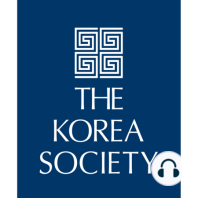41 min listen

The U.S.-Republic of Korea Alliance at 70: Legacy and Future
The U.S.-Republic of Korea Alliance at 70: Legacy and Future
ratings:
Length:
98 minutes
Released:
Oct 20, 2023
Format:
Podcast episode
Description
Recorded October 4, 2023 Signed on Oct. 1, 1953, in the wake of the armistice, the U.S.-South Korea alliance has matured into a dynamic partnership, deterring conflict and fostering cooperation with respect to trade, technology and people-to-people ties. This expert panel reflected on the legacy and future of the alliance. This program was jointly hosted by The Korea Society, the Korea Defense Veterans Association and the Korea-Pacific Program at the UC San Diego School of Global Policy and Strategy. About the Speakers: Thomas J. Byrne joined The Korea Society as its President in August of 2015 following a distinguished career that included Senior Vice President of Moody's Investor Services and Senior Economist of the Asia Department at the Institute of International Finance. Byrne has an M.A. degree in International Relations with an emphasis on economics from The Johns Hopkins School of Advanced International Studies (SAIS). Before doing graduate work at SAIS, he served in South Korea for three years as a U.S. Peace Corps volunteer. His commentary on Korean affairs has appeared in the Wall Street Journal, The New York Times, The Washington Post and The Financial Times among others. Stephen Haggard is the Lawrence and Sallye Krause Distinguished Professor and director of the Korea-Pacific Program at the UC San Diego School of Global Policy and Strategy. He teaches courses on the international relations of the Asia-Pacific at GPS covering political economy as well as security issues. He has done extensive research on North Korea in particular. In addition, he has a long-standing interest in transitions to and from democratic rule and the current phenomenon of democratic backsliding. His recent research on South Korea addresses the issue of political polarization, including with respect to foreign policy. Allison Hooker is a foreign policy and national security specialist with 20 years of experience in the U.S. Government working on Asia. She served as Deputy Assistant to the President and Senior Director for Asia, where she led the coordination and implementation of U.S. policy toward the Indo-Pacific region. Prior to that, Hooker served as Special Assistant to the President and Senior Director for the Korean Peninsula, where she staffed the U.S.-DPRK Summits in Singapore, Hanoi, and the DMZ. Prior to her service at the White House, Hooker was a senior analyst for North Korea in the Department of State and staffed the Six-Party Talks on North Korea’s nuclear program. She received a Masters’ of Arts Degree in International Affairs from the George Washington University, and has been a research fellow at Osaka University and Keio University, where she focused on Japan-Korea relations, and Japan-China relations, respectively. Youngwan Kim is a career diplomat who joined the Foreign Ministry of the Republic of Korea in 1993. He worked at various Ministries of the Korean Government, including Foreign Ministry, Unification Ministry, and Office for Government Policy Coordination, Prime Minister’s Office. Prior to his current post as Consul General in LA, he served as Director-General for National Security and Foreign Policy at the Prime Minister’s office. He also worked as Director-General for Planning and Management of the Foreign Ministry. His most recent foreign post was a Member of the Panel of Experts, UN Security Council Sanctions Committee at the United Nations headquarter. His foreign posts also include Washington D.C., New York, Beijing and Baghdad. Munseob Lee is an economist who concentrates his research efforts on macroeconomics, growth and development, firm dynamics, and Korea. He has investigated the factors that determine the growth of firms, with a particular focus on how government purchases can promote long-term growth of small businesses. Additionally, he examined the disproportionate effect of inflation, revealing that low-income households and black families are the most affected by rising prices in the United Sta
Released:
Oct 20, 2023
Format:
Podcast episode
Titles in the series (100)
North Korea: Peace? Nuclear War? with William Overholt: October 3, 2019 - Harvard University’s William Overholt discusses the release of his new edited volume, North Korea: Peace? Nuclear War? with Society President Tom Byrne. Overholt tackles the range of approaches to North Korea, the interplay of... by The Korea Society